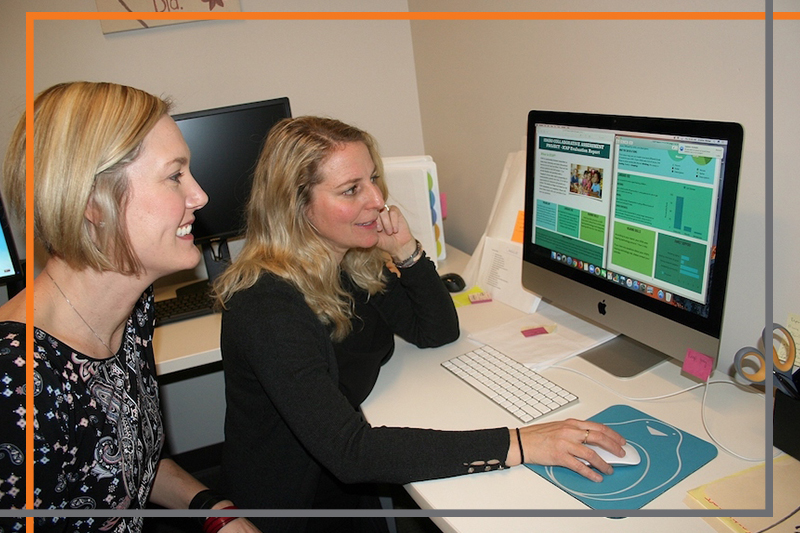Idaho State University - Meridian Professors Working to Improve Outcomes for Children who are Deaf/Hard-of-Hearing

Grant funding from the Oberkotter Foundation will help the parents of children who are deaf and hard of hearing in Idaho to better understand their child’s needs at a very early age. Drs. Kristina Blaiser and Gabe Bargen, associate professors in the Department of Communication Sciences and Disorders at Idaho State University-Meridian received this substantial grant for their program. The grant, which is nearly $300,000, about $100,000 a year for three years, was awarded by the Oberkotter Foundation, a group whose efforts are focused on supporting families who have chosen listening and spoken language for their child.
Blaiser and Bargen are co-principal investigators in the Idaho Collaborative Assessment Project or ICAP. Additionally, Blaiser is founder of the HATCH lab, which stands for Helping Adults Talk to Children. The lab was created about three years ago, with the purpose of providing intervention services to families with children that have some degree of hearing loss, and to enhance collaborative work with the community of stakeholders who serve children who are deaf and hard of hearing in the Treasure Valley.
The HATCH lab assesses children ages zero to five in an effort to better understand their communication outcomes. Since newborn hearing screenings are not mandated in Idaho, the goal is to identify issues as early as possible to help ensure children are prepared when it comes time for them to go to school. Identifying hearing loss and language needs as early as possible provides the best opportunity for treatment and benefits to children. “This grant is meant to use assessment to improve outcomes for kids who with hearing loss across the state,” Blaiser explains. “It will also allow us to hire students to support some of the data analysis and reporting as well as developing data visualization for assessment results.”
Blaiser says often times after an assessment or exam, written results are given that parents cannot always understand. That leads to them turning to Google and using their own outside resources in an attempt to interpret and decode their child’s results. Often times they aren't able to receive all of the potential benefits intended from those results. This program aims to resolve that issue by creating enhanced visual data reports. These reports are created with images and infographics that allow parents to visually see their child’s data and better understand it. They can compare their child’s assessment to developmental norms to see how their child is performing. Blaiser breaks down the issue at hand, stating “Regions have late identification or lose kids after their follow up, resulting in the failure of giving them resources to improve their spoken language. We are seeing opportunities to provide more support to families and providers in terms of complex language use.”
“There is nothing quite like this across the United States, it is a new, cutting edge, very unique assessment process. While we already manually produce visual reports such as this, we want to utilize a software than can create these models easily as well as alter the variables in order to see comparisons,” added Blasier. In addition to providing paper or PDF forms, Blaiser and Bargen want their assessment tools to be accessible online. Eventually, children’s results may be linked to modules aimed at providing information on how parents can work with their child and providers to find ways to improve the areas they may need to work on. Not only will parents have access to results and information that they can easily comprehend, but they can then use resources provided in order to reach goals with their child and produce better outcomes. The enhanced assessment tools will also be utilized in training clinicians.
Written by: McKenzie Dalley, Career Path Intern
